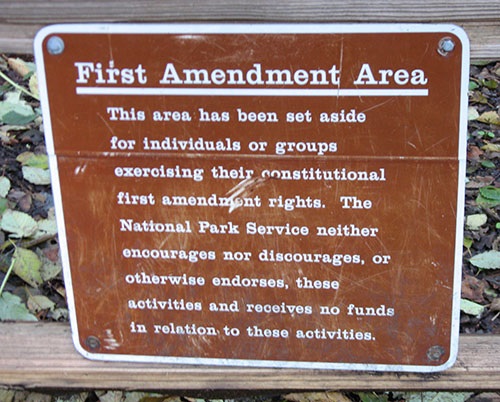
May 17, 2016; Politico
Just weeks after releasing a damning report on the media’s ability to preserve the First Amendment, the Knight Foundation has taken a bold and prominent leadership role on the issue. The foundation is partnering with Columbia University to open the Knight First Amendment Institute, which will work to “preserve and expand First Amendment rights in the digital age.” With a $60 million operating endowment, the institute appears poised to tackle several of the issues that were raised in the foundation’s survey on the declining state of First Amendment rights in the changing digital landscape as compared to a decade ago.
“The basic freedoms we take for granted under the First Amendment are hardly settled,” said Alberto Ibargüen, the president of the Knight Foundation, in a press release. “As the Internet becomes even more integral to our lives, we face significant questions about the evolution of our rights. Threats to free speech are on the rise, and our hope is that the Institute will not just protect but help reinvigorate First Amendment principles for future generations.”
Lee C. Bollinger, president of Columbia University, said in a statement:
In the past, news organizations pursued and won key court cases defining free expression. But such cases can be enormously expensive and many media—both established and new—are increasingly hard-pressed in the current economic environment to support First Amendment legal action. While the digital age has opened up new opportunities for accountability journalism, we need to fill the void and continue to champion free expression through litigation, research and education.
The Knight Foundation and Columbia University will each contribute $5 million in operating funds, in addition to $25 million each for an endowment to establish the nonprofit institute, amounting to a total $60 million. The institute will provide resources to lawyers working on cases involving the First Amendment as well as support research related to the First Amendment and education efforts. The institute will make use of faculty from Columbia’s prestigious law and journalism schools, both nationally recognized in their respective fields.
Sign up for our free newsletters
Subscribe to NPQ's newsletters to have our top stories delivered directly to your inbox.
By signing up, you agree to our privacy policy and terms of use, and to receive messages from NPQ and our partners.
The institute’s focus on First Amendment issues in the digital age will be of particular interest to the media given the findings of the report, which the Knight Foundation derived from the responses of 66 top editors from a variety of publications large and small, including online sites. In the survey, an overwhelming 88 percent agreed that the digital age has opened several “unsettled legal questions about the scope of free expression.”
“Digital journalism has created exciting, unprecedented opportunities for how we report and receive the news,” said Jennifer Preston, Knight Foundation’s vice president for journalism, in a statement. “Today’s reporters and news outlets have access to innovative platforms, fresh perspectives and a level of immediacy like never before.”
But, as Preston observed, digital journalism is also creating First Amendment challenges:
Without sustained advocacy dedicated to defending uninhibited expression and a free press, we are at risk of experiencing a steady erosion of these bedrock freedoms. This is a precarious moment for the First Amendment, and with this Institute we hope to establish a primary, permanent, influential advocate of free expression.
Given the rapidly changing world of digital journalism, there’s a decided lack of established precedent. One way to answer these questions is through litigation. However, 44 percent of the survey’s respondents felt less able to take offensive litigious positions on controversial cases than they did ten years ago—and that decline is due in some degree to a lack of money. By providing financial support to lawyers pursuing such cases, as well as funding research and education with a $60 million investment, the First Amendment Institute serves to address some of the very issues seen in the Knight Foundation’s survey.—Shafaq Hasan













